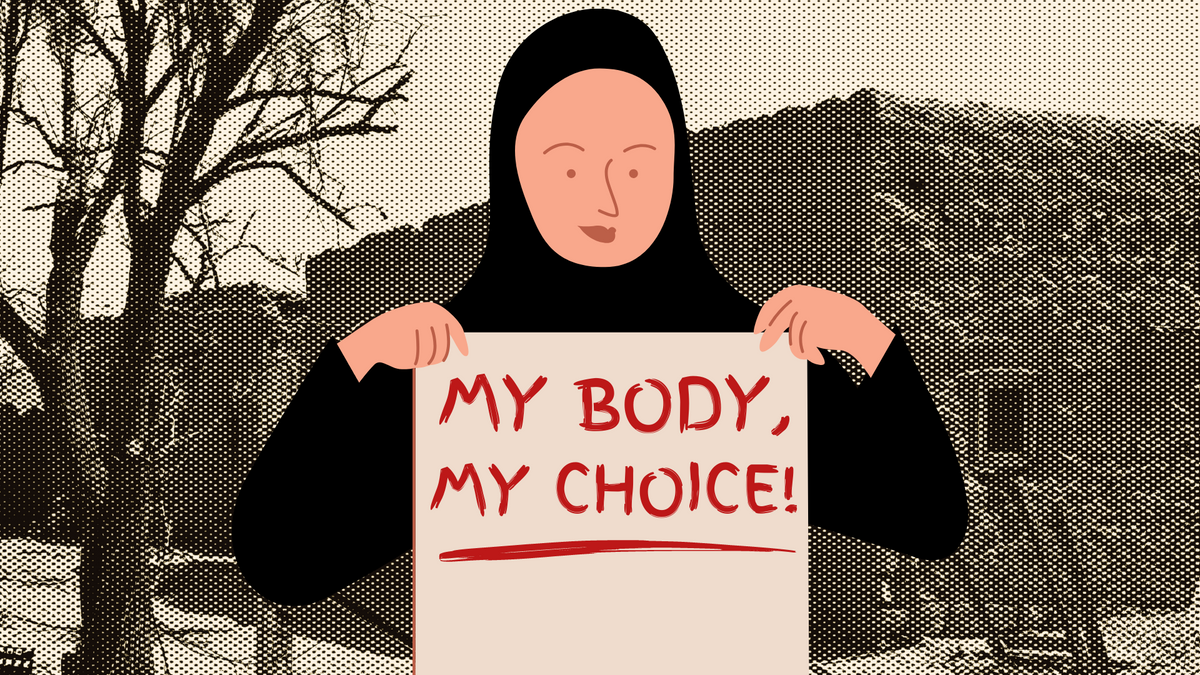No, Islam is NOT Pro-Choice
No matter what some woke people are saying

In light of the Roe v. Wade repeal in the United States—which effectively removed the protection of a woman’s right to a safe medical procedure to terminate an unwanted pregnancy—Muslims have had a lot to say about reproductive rights in Islam.
Quartz–a business news publication published an article titled, “Saudi Arabia’s abortion laws are more forgiving than Alabama’s.” This article points out that some Muslim-majority countries permit abortions under certain circumstances, but it does not explain the reason why they are not unanimous in their ruling on abortion.
NowThis News released a video on their YouTube channel–to their approximately 2 million subscribers–titled, “How Muslims Are Fighting For Their Abortion Rights,” in which HEART representative Sahar Pirzada explained how pro-abortion Islam is:
“[Islam] actually gives me a lot of my rights to exercise bodily autonomy,” and “it’s been interesting to see also so much of the Islamophobic stances, when the first leaked decision came out that were framing the stance as, ‘oh, what is this, Islamic Sharia?’ And we’re like, well, if it was actually following the Islamic Sharia, it would be very nuanced and it would actually be very compassionate in the ways that it approached the ruling.”
Muslim users with large followings on Twitter are rushing to declare that “[abortion] isn’t sharia, by the way,” and “Islam permits abortion for a variety of reasons & keeps the healthcare decision between a woman & her loved ones & doctor.” Charlotte Clymer, a “trans lesbian” Muslim apologist claimed that “every Muslim American in Congress is pro-choice and pro-LGBTQ.”
I need to clear something up:
Islam does not advocate for reproductive rights for women. Islam does not believe in a woman’s right to make her own choice regarding her body and life, certainly not in the context of her pregnancy. Ergo, Islam is not pro-choice.
Stop saying—or even implying—that it is.
According to Islamic law, a fetus acquires a soul 120 days (approximately four months) after conception. Before the 120-day mark is reached, abortion is permitted under one or both of two circumstances:
- If the pregnancy happened as a result of rape, or
- If the fetus is observed to have a deformity, which will consequently make its chances of surviving (pre- or post-birth) very low.
After the 120-day mark, abortion may only be permitted if medical professionals determine the pregnancy to be a serious threat to the mother’s life.
The rape condition is not as straightforward as it might seem.
In Islam, marital rape is not a valid concept, so a woman’s rape by her husband will range from difficult to impossible to prove. Also, Islam considers the time that females enter their pubescent stage to be the appropriate age for marriage. Finally, rape is a very difficult thing to prove by Islamic standards. Two male witnesses (or two females per one male) are required to back a woman’s claim of rape. It is common for women in Muslim societies to avoid reporting their rape because if they fail to prove that the sexual encounter was non-consensual, the consequences of practicing extramarital sex are dire.
To summarize: if a woman was raped by her husband, she has no case for divorce, let alone abortion. If she was raped by a man who had no “right” to her body (unlike her husband, according to Islam), she needs to work on providing witnesses and proof before a discussion of abortion could even take place.
Let’s move on to the “deformity” circumstance. In all descriptions of what qualifies as deformities, the bottom line is that it must interfere with the fetus’ ability to survive. At this point, an “extreme case” is not so much a mother’s decision than it is a medical evaluation. Although this circumstance is preferable to forcing a mother to deliver a child that has a low chance of survival, it is the bare minimum of what reproductive rights should constitute.
Notice that rape is determined by religious authorities and “extreme deformities” by medical professionals. A woman may not say, “My husband and I are too poor to have a child.” She may not say, “I am only 20 and just got married, I haven’t even graduated from university yet. I’d just like to wait another two years before having a child. This was an accident.” She most certainly may not say, “I wanted to use contraceptives, but my husband did not allow me to take birth control pills, and he did not listen when I asked him to use a condom, and he did not listen when I asked him to pull out when he finished.” After all, while the prophet of Islam approved of practicing coitus interruptus, he did disapprove of a Muslim wife practicing sexual autonomy in her marriage.
Once a couple is married, in fact, family members, in-laws, and family friends will put pressure on them to have children. The more time passes, the more pressure applied, constant and ruthless. Women are interrogated by their parents and in-laws. If their husbands don’t force them to have their children, their families will. On paper, contraceptives are acceptable in Islam, but in practice, they are discouraged in Islamic communities. A Muslim individual must strive to get married as the prophet did, and once married, it would be a scandal to remain without child. Disgraceful enough if there is a biological barrier to having children on either the husband or wife’s side—worse yet if there isn’t.
I don’t see anything resembling a choice here. If a married Muslim woman wants to have an abortion (even if she did have the approval of her husband), she might pray that the child has an extreme deformity. Tragically and horrifically, she might skip praying altogether and attempt to terminate the pregnancy on her own.
4W provides paid writing work for over 50 women in countries spanning the globe. This work is made possible thanks to our paid monthly subscribers. Join today to support our work!
Enter your email below to sign in or become a 4W member and join the conversation.
(Already did this? Try refreshing the page!)





Comments